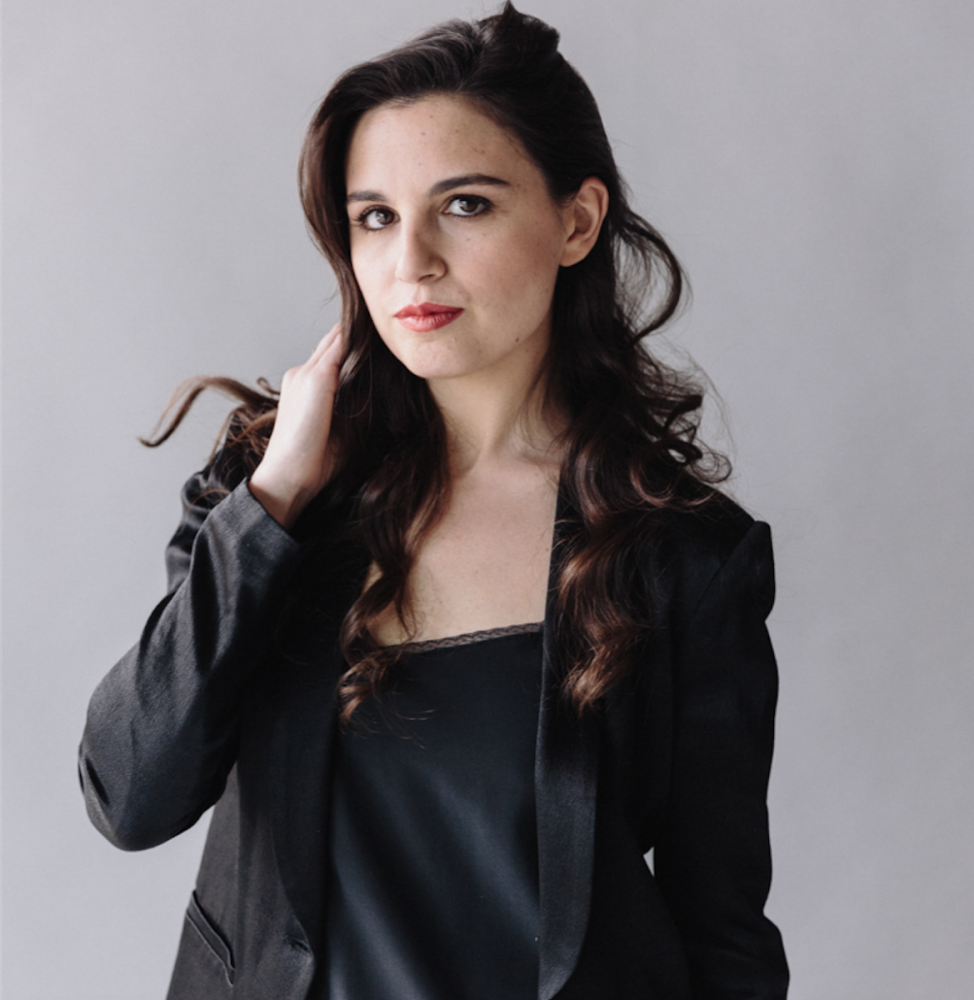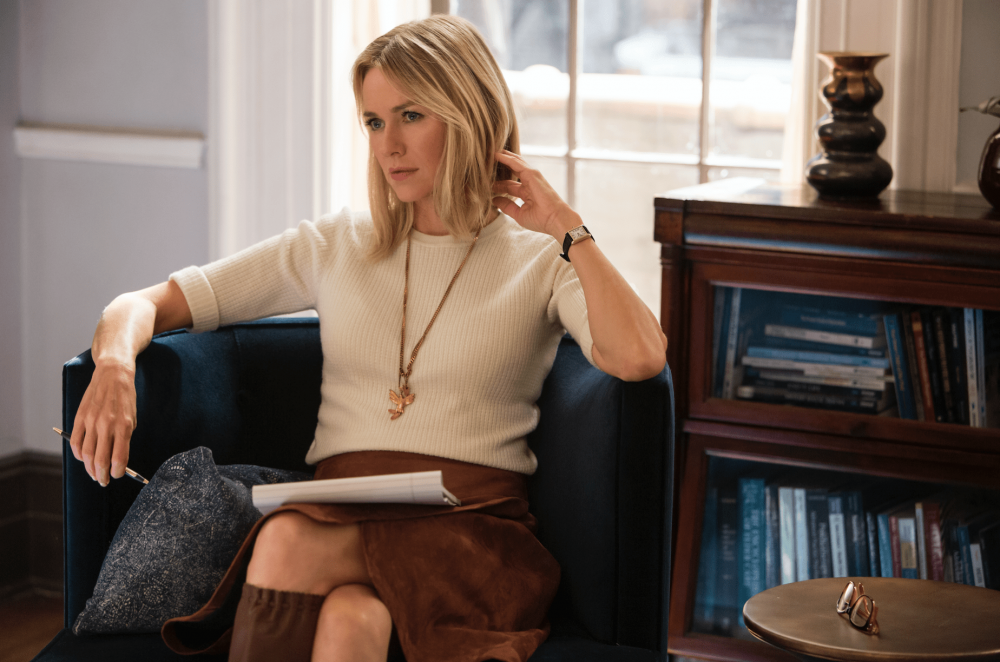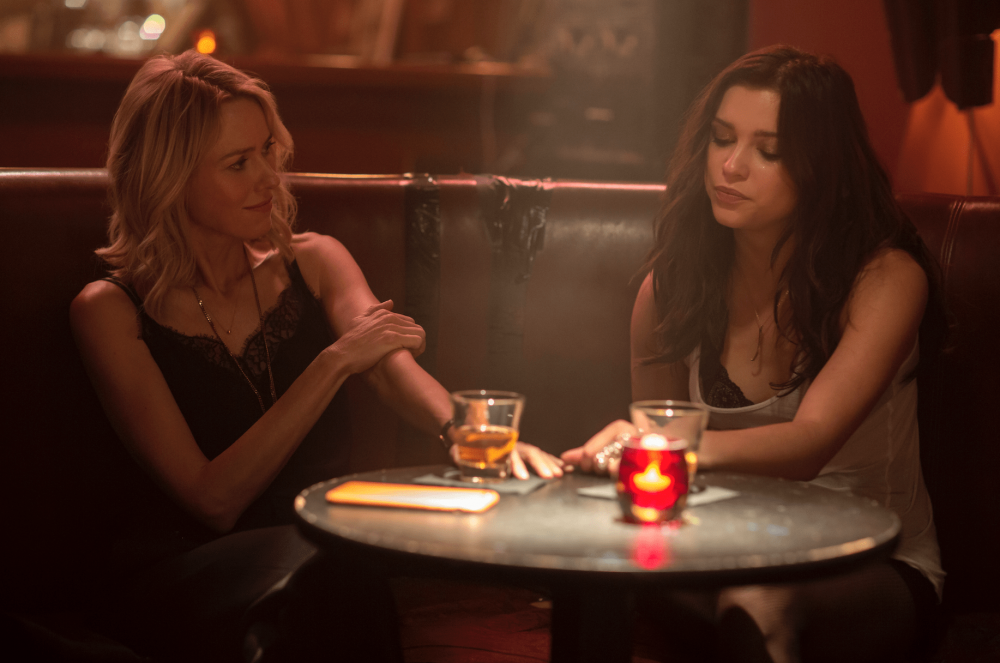‘Gypsy’ follows a female therapist (Naomi Watts) exploring her sexuality”through her patients.
We’ve had Breaking Bad, Mad Men and Californication—we’ve had any number of long-running TV series about misanthropic and misogynistic men-children screwing up their lives.
But we’re yet to see a female protagonist in the grips of a midlife crisis, exploring her sexuality and breaking boundaries. Until now.
The 10-episode first season of Gypsy, a psychological thriller, centers on a 40-something female therapist, Jean Holloway, who has a picture-perfect life: a devoted and successful husband, a plucky tomboy daughter, a house straight out of Connecticut Living magazine, and a solid Manhattan psychotherapy practice—plus supportive colleagues and friends. But it’s not enough.
Something is missing.
An aspect of herself that is going unlived. We see Jean fixating on her patients during their sessions. Psychoanalysis becomes a rabbit hole down which she disappears to access that latent part of herself.
Fittingly enough, it is to a coffee shop called The Rabbit Hole that Jean ventures to seek out one of her male patient’s ex-girlfriends—a young Bushwick barista named Sidney Pierce who is also the lead singer in an indie band called Vagabond Hotel.
Sidney is everything Jean is not: young, edgy, adventurous, spontaneous—and sexually fluid. She is adept at experimenting, whether that’s with her creativity, her sexuality, or with substances. Sidney’s life choices are the direct opposite of Jean’s, which revolve around play dates with her daughter, date nights with her husband, and responsibly shepherding her patients through their personal crises.
As her fascination with Sidney develops into sexual attraction, Jean develops an alter ego for herself—Diane Hart—so that she can pursue Sidney further down the rabbit hole. The only problem is, Sidney—a Brooklyn queer girl who likes older women—is genuinely attracted to Jean and wants to find out more about her but she keeps hitting roadblocks. The plot thickens: Is Jean’s fixation on Sidney romantic?
Will she let Sidney in without letting her know who she is? What develops is a cat and mouse seduction that is interwoven with all the other aspects of Jean’s life—her marriage and practice begin to suffer as she explores her identity and tries to maintain a double life. Will it come undone?
As a show, Gypsy—cleverly scripted by its creator Lisa Rubin—uses metaphors of doubling, doppelgangers and parallel narratives to build suspense and resonance. But it’s also polarized lesbian viewers like no other show I can recall. Some love it, others can leave it. Some are drawn into Jean’s world and her obsession with Sidney. Others find her behavior toxic and alienating.
I caught up with Lisa Rubin to get to the bottom of the rabbit hole, and to discuss what was causing many lesbians’ obsession with the show.


Gypsy has received mixed reviews from critics but it is a hit with the lesbian community—while inspiring some pretty polarized responses. What do you make of that?
I think it’s one of the most fascinating points, I have to say. The show’s about identity, and the exploration of identity. Literally, how the show’s being received—everyone has a different point of view—it’s almost like the show is the Rorschach test. In one breath someone will say, Oh it’s slow. And someone else will say, It’s addicting—which are exact polar opposites.
It’s very interesting how, if it gets under your skin, you are all in and if it’s not for you, it’s not for you. I really don’t know if that’s a thing about Jean—like if you identify at all you’re on board and if you just can’t get inside of it—I don’t know what you’re watching. I think the disconnect is really interesting and think it is polarizing and I think I always kind of knew it would be. … Some people are like, It’s toxic, I love it and some people are like, Get me the hell out of here.
I think all reactions are valid but I definitely think Jean is polarizing as a character—everyone is watching a different series in a way and it’s really infinite because it brings out something in the viewer.


You are the creator of the show, which is based on your original screenplay. Where did this story come from for you?
Identity and exploring your sexuality are things that for me are very important, and for people in my life, and around me, and other women. I wanted to tell a story that was authentic about a woman who is struggling with all different things in her life—and therapy is part of what she’s doing unethically.
But she’s also a little bit trapped in her current circumstances, and while everything might look perfect, there is a sort of irrational repression underneath that. And I think Sidney is a manifestation of the possibility.
You know, here’s this girl who has everything in front of her, whereas Jean has committed to all of these things. Her choices have been made. And so the attraction to Sidney is—yes it’s attraction to a woman, but it’s also an attraction to something potentially that is inside Jean herself. Labels were a huge thing that I did not want to get into. I didn’t feel like this was about, Oh is Jean a lesbian? It’s a really natural thing when you’re attracted to somebody, and Jean finds this girl and everything she hears about her from Sam, really compelling.
And that sort of almost-falling-in-love with Sidney through the sessions with Sam kind of sends her to seek her out. It becomes this cat and mouse thing, yes, but I find the Sidney-Jean scenes really romantic.
I feel like, even though the show is a little bit obviously twisted, I find the scene at the movies at the beginning of Episode 4, for example, so romantic. There’s something in Jean that really wants a real intimate connection with Sidney, despite the fact that she’s obviously lying as a way of getting it.
Sidney is a great creation. A modern, sexually fluid woman who wants to live her life authentically—or so it seems. Where did she come from?
It’s been interesting with Sidney because it was really important to me that she is proud of who she is and she’s sort of fluid, she’s happy, she’s into older women—I really like her confidence about it. I feel like, as opposed to Jean who suffers from more potential shame, I like that Sidney kind of owns it, I think that’s really kind of nice. I really relate to that whole storyline, so that’s definitely part of it. What is it that Sidney represents?
She represents exactly what Jean needs, which is complete freedom. Internally Jean has so much that makes her feel chained or repressed or restricted and I think in Sidney really doesn’t give a fuck, really is free in her soul somehow. That for me was part of the attraction.
I think Jean also wishes she could be her. I think a lot of women when they’re coming out or dealing with sexuality, talk about this. You don’t know if you want to be with someone or be them. I think that blurred line is there with Jean and Sidney, especially when they first meet in the first few episodes. That distinction is hard to even articulate—especially with women. What is that line?
Sophie Cookson is a real discovery as Sidney. How did you find her?
Sidney was the hardest to cast. We auditioned six, seven hundred girls. We had Naomi at this point and I knew I really wanted Sidney to be a discovery because I felt like if it was a name we knew, that person would be collared with so much baggage.
I really wanted us to discover Sidney as Jean discovers her. Sophie Cookson was in the Kingsman movies but she’s relatively fresh and new. In a way, it’s a really impossible role because in the beginning of the show she really sort of is the object for Sam and for Jean and that’s a lot of pressure on an actress—and she also sings.
There were many boxes to fill and it was a very difficult process to cast her, so we were so happy to get Sophie.
Naomi Watts seems very committed to her role, to her chemistry with Sophie, and to the series overall. Can you tell us more about her involvement?
I’d written the pilot and I had Working Title involved and then we actually pitched to Netflix and they greenlit the show before we had [director] Sam Taylor-Johnson or Naomi [Watts] involved so then it was like, OK how do we actually put together the best version of the show? Sam Taylor-Johnson was friendly with Naomi who read the script and really connected to it and at that point her signing on was a huge thing for the show.
She couldn’t be more perfect for the role. She constantly checked on all of truths inside the story and in Jean. We would talk on set, scene to scene, about Jean’s motivation, and she was just very committed and invested and she’s in most of the series, fully as an actress and as an executive producer.
It was really nice to have this team of women. The energy on set was nice, there was a real camaraderie, and people felt like everyone was in it for the right reasons.
The tide seems to be turning for women behind the camera as well as on screen, and this series does a lot to establish a female gaze. Can you tell me about how you see it?
We always see the way a man will fantasize or look at a woman. But the idea of the woman as the subject, looking at a woman—that was actually in it from the beginning in the scenes in the Rabbit Hole. I wanted Jean to look at Sidney and study her and at times objectify her.
I wanted to see what that would look like. I think that’s something that within the community we all know happens—but we don’t actually see it depicted. When I wrote the script I never dreamed that this was what the reality was going to be. I think because I wrote it from the inside out and based on what’s authentic for me, I didn’t even fully comprehend how vital it is.
We need to have female representations, we need to have female directors, it’s great to have stories about men, but women are 50% of this world, and there are so many stories to tell. Netflix gave me permission to create a female character that is not necessarily likable.
I know people worry about women not being likable. But I think we should persevere and tell the story even if it makes some people uncomfortable. I don’t think you can appeal to everyone at all times. I think Gypsy is just honest about what women are capable of.
Just like men, they’re capable of a lot. I personally love writing about flawed strong women. I always have and I really think, especially in the landscape right now, it’s more important than ever. For me, I’m going to continue—I hope—to tell stories that feel authentic and real.
